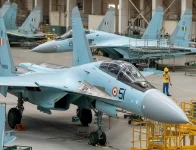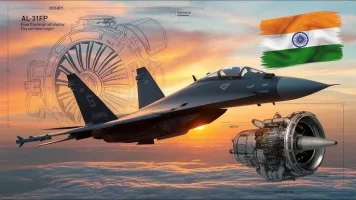- Views: 2K
- Replies: 14

The departure of Angela Merkel as German Chancellor in 2021 signaled a significant shift in Germany's defence export policies, paving the way for ThyssenKrupp Marine Systems (TKMS) to re-emerge as a leading contender in India's ambitious P75I submarine project.
Under Merkel's 16-year leadership, TKMS faced considerable hurdles in its pursuit of the Indian contract. Despite being a frontrunner, stringent export controls and demanding technology transfer requirements imposed by the Indian Navy hampered the company's ability to compete effectively.
Sources within the Indian Navy revealed that TKMS was particularly concerned about securing the necessary clearances from the German government to meet India's expectations for technology sharing.
Germany's restrictive export policies under Merkel, often criticized for being overly cautious, even extended to denying routine arms deals, such as the supply of German-made assault rifles to India, under the pretext of potential use in conflict zones.
However, the arrival of Chancellor Olaf Scholz marked a turning point. Scholz adopted a more pragmatic approach to arms exports, recognizing the importance of strategic partnerships and international defence cooperation.
One of his first moves was to dismantle the "blacklist" of countries that had restricted defence exports under Merkel's administration. This policy shift, coupled with Scholz's encouragement for German defence companies to prioritize exports, particularly in key markets like India, created a new opening for TKMS.
In 2022, TKMS made a significant comeback in the P75I project, capitalizing on the changed political landscape in Germany. The company's renewed participation is directly attributed to the more flexible export policies under Scholz, reflecting a government more attuned to contemporary geopolitical realities.
TKMS is now better positioned to meet the Indian Navy's stringent requirements, including the crucial demand for a substantial level of technology transfer. With Germany's softened stance on arms exports, TKMS can offer the kind of indigenous manufacturing and technology sharing that India has long sought in its defence partnerships.
The P75I project, a cornerstone of India's naval modernization efforts, aims to build six advanced conventional submarines equipped with air-independent propulsion (AIP) capabilities.
TKMS's extensive experience in submarine construction and its proven ability to collaborate with Indian shipyards for local production make it a strong contender for this strategically important contract. The company's success in navigating the changing political tides in Germany has undoubtedly strengthened its position in this high-stakes competition.



